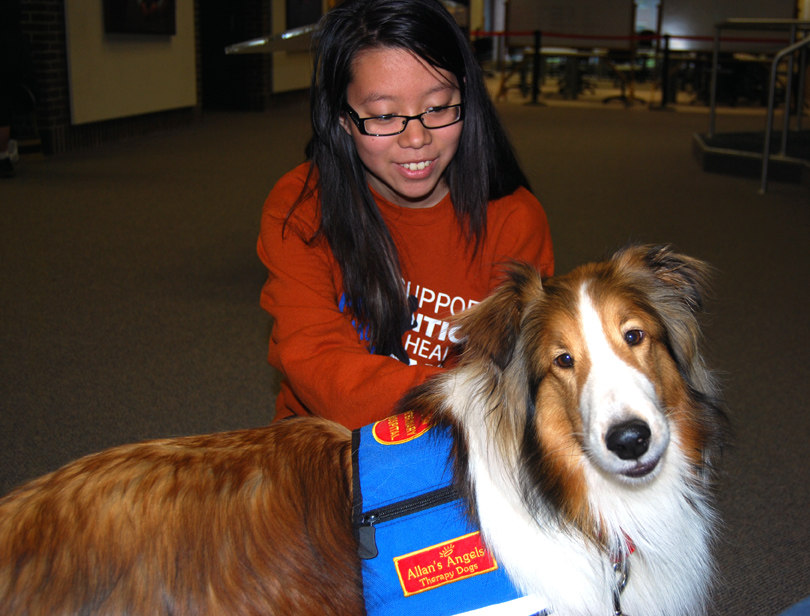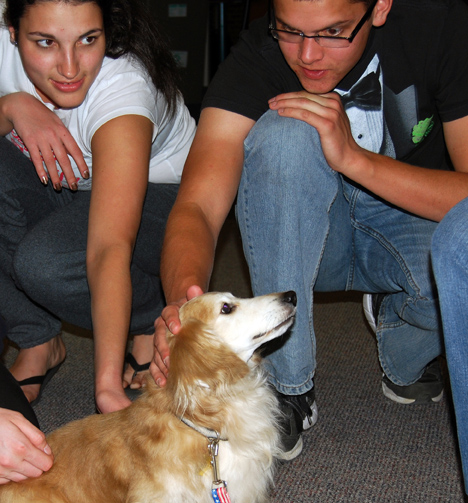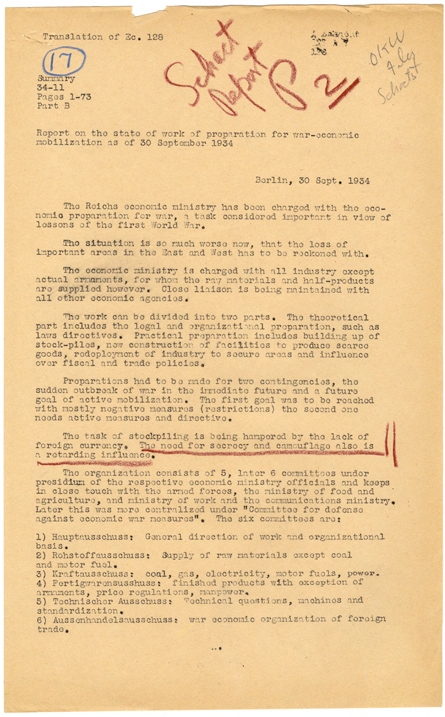In what has become a tradition here at the Homer Babbidge Library, the Paws to Relax program will return for fall semester finals on Monday, December 9th. The Paws to Relax program allowed students to interact with therapy dogs brought to campus in an effort to curb stress levels. The program, in its fourth year, is bringing trained and certified animals from area organizations to the first floor of Homer Babbidge starting Monday and running through Friday.
The schedule is below, and subject to slight changes so keep track here or on our Facebook page.
Monday, December 9th
10:00-11:00 Judith & Bella (Pug)
11:00-12:00 Christine & Bo (Lab Mix)
12:00-1:00 Jeanne & Legend (Golden Retriever)
1:00-2:00 Susan & Juno (English Cocker Spaniel)
2:00-3:00 Laura & Leah (Australian Shepherd)
3:00-4:00 Sandra & Nutmeg (Golden Retriever)
4:00-5:00 Ted & Luke (Golden Retriever)
5:00-5:30 Laurel & Dooley (Newfoundland)
5:30-6:30 Laurel & Iggy (Portuguese Water Dog
6:30-7:00 Sandra & Ginger (Golden Retriever)
7:00-8:00 Michelle & Vinnie (English Mastiff)
Tuesday, December 10th
10:00-11:00 Susan & Penn (Labradoodle)
11:00-12:00 Brian & Chase (Golden Retriever)
12:00-1:00 Pat & Katherine w/ Chumani & Kammi (Keeshonds)
1:00-2:00 Paul & Bella (Schnoodle)
2:00-3:00 Terri & Mia (Shetland Sheepdog); Ted & Luke (Golden Retriever)
3:00-4:00 Linda & LaFawnda (Whippet)
5:00-6:00 Kristine & Duncan (Black Lab)
6:00-7:00 Christine & Vienna; Bill & Prinz (mini-Dachunds)
7:00-8:00 Christine & Vienna; Bill & Prinz (mini-Dachunds)
Wednesday, December 11th
10:00-11:00 Barbara & Julie (Shetland Sheepdog)
11:00-12:00 Linda & Lulu (Labrador Retriever)
12:00-1:00 Susan & Kai (Cavalier King Charles Spaniel)
1:00-2:00 Michelle & Chase (Golden Retriever)
2:00-3:00 Nancy & Beia (Bernese Mountain Dog)
3:00-4:00 Julie & Dolly (Golden Retriever)
4:00-5:00 Robin & Cezanne (Australian Shepherd)
5:00-6:00 Karen & Apollo (Golden Retriever)
6:00-6:30 Laurel & Dooley (New Foundland)
6:30-7:00 Laurel & Iggy (Portuguese Water Dog)
7:00-8:00 Nancy & Cooper (German Shepherd)
Thursday, December 12th
10:00-11:00 Carmen & Timex (Chesapeake Bay Retriever)
11:00-12:00 Carmen & Frodo (Smooth Chow Chow)
12:00-1:00 Ann & Scout (Labrador Retriever)
1:00-2:00 Laurel & Sasha (Shetland Sheepdog)
2:00-3:00 Rebecca & Lilly (Shetland Sheepdog)
3:00-4:00 Devon & Rosie Lee (Corgi Mix)
4:00-5:00 Linda & Virgil (Mini Australian Shepherd)
5:00-6:00 Sue & Kate (Golden Retriever)
6:00-7:00 Kerry & Jessie (Black Lab)
7:00-8:00 Rozelyn & Cadbury (Black German Shepherd)
Friday, December 13th
10:00-11:00 Barbara & Julie (Shetland Sheepdog)
11:00-12:00 Tracy & Bugs (Great Dane)
12:00-1:00 Gery & Taz (German Shepherd)
1:00-2:00 Ellen & Annie (Husky Mix)
2:00-3:00 Layla & Sophia (mini Golden Doodle)
3:00-4:00 Claudia & Tegan (Welch Springer Spaniel)
4:00-5:00 Linda & Dante (Mini Australian Shepherd)
5:00-6:00 Diane & Meka (Keeshond)
6:00-7:00 Terri & Mia (Shetland Sheepdog)
7:00-8:00 Karen & Sebbi (Cocker Spaniel)



![Courtroom scene, [between 1945 and 1946].](https://blogs.lib.uconn.edu/news/files/1994-0065_ph_371_8441_sm-150x150.jpg)
